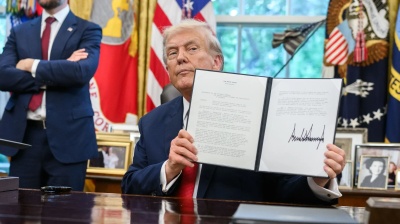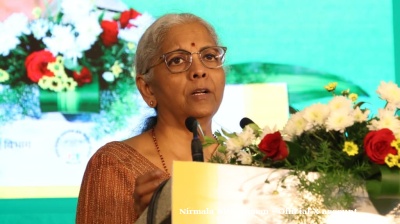Moldovans will vote on November 5 for their mayors and City Councils, in a vote that will also show whether the window of opportunity for European integration will close or not after the 2025 general elections.
President Maia Sandu’s Party of Action and Solidarity (PAS) is the only political force in Moldova openly advocating for the country’s EU membership and failure to get at least a relative majority in the City Councils would deal a twofold blow to its fast-track accession ambitions.
Firstly, it would predict weaker than expected support for the pro-EU integration and secondly, mayors opposed to EU integration would make a negative contribution ahead of the parliamentary elections in 2025.
As the local elections approach, President Sandu and fugitive oligarch Ilan Shor, who is backing her rivals, are sparing no effort to support their candidates.
Sandu has accused Russia of buying Moldovan voters — but only voters for sale can be bought.
She also claims that Russia pumped millions of dollars to support its candidates, and the authorities have recently closed down pro-Russian, or only Russian-language media.
The governor of Gagauzia Evghenia Gutul, backed by Shor, has promised cheap natural gas and is already distributing supplementary financial stipends to pensioners out of Shor’s money.
Meanwhile, the Socialists and Shor accuse the pro-EU authorities of autocracy.
Since coming to power, Sandu and the PAS took a number of at least ambiguous steps particularly when it comes to justice reform. Still, they took more steps in the direction of EU integration at a time when this matters a lot in the complex regional context. They enjoy the EU’s full support for preventing backsliding on democracy, but need to improve their credibility in front of their own electorate.
Polls show the pro-EU authorities’ steps in the reform of justice and public administration failed to win over undecided voters over the last year.
Former Socialist (pro-Russian) incumbent mayor of the capital city Chisinau Ion Ceban, who leads his own party, MAN, is expected to get another term, as he is backed by 52% of the voters — three times more compared to the support enjoyed by the pro-EU candidate Lilian Carp of the PAS.
The pro-EU parties have never controlled the second-largest city in the country, Balti, and Shor’s political vehicle remains the main rival to the independent incumbent mayor of the city.
The latest poll by iData confirmed a complicated big picture: the pro-EU PAS leads in the electorate’s preferences, which would make it the biggest party with 44 mandates in the 101-seat parliament in a parliamentary election, but it would lose its majority. The PAS has no potential political ally among the other relevant parties likely to have lawmakers.
On the other hand, the Socialists (23 seats) and Shor’s political vehicle (22 seats) will need the support of smaller parties to form a ruling majority. Such a scenario is not entirely unlikely, as one of the smaller parties is formed by Ion Chicu, a former adviser to Socialist leader Igor Dodon.
According to the same poll, Sandu leads in voters’ preferences for the presidential elections. She is highly likely to get a second mandate next year, but its powers would be harshly limited in the absence of a pro-EU ruling majority after 2025.
News

Trump authorises CIA covert operations in Venezuela to topple Maduro
The White House has acknowledged granting the Central Intelligence Agency sweeping powers to conduct covert operations aimed at unseating President Nicolás Maduro, the NYT reported.

India’s finance minister to miss upcoming IMF and World Bank meetings
India’s Finance Minister Nirmala Sitharaman will not attend this week’s annual meetings of the International Monetary Fund and World Bank in Washington, as trade negotiations between New Delhi and Washington remain unresolved.

Young Ukrainians asylum seekers fleeing the war for Germany surges
The number of young Ukrainian fleeing the war and seeking asylum in Germany has surged, following Ukraine’s decision to partially lift its travel ban for men aged 18 to 22, according to figures from the German Interior Ministry.

US may double support for Argentina to $40bn conditional on policy reforms
Washington buys Argentine pesos and mulls creating a new private sector-led $20bn debt facility, which would bring total support to $40bn with the existing swap line, Treasury Secretary Bessent said.




